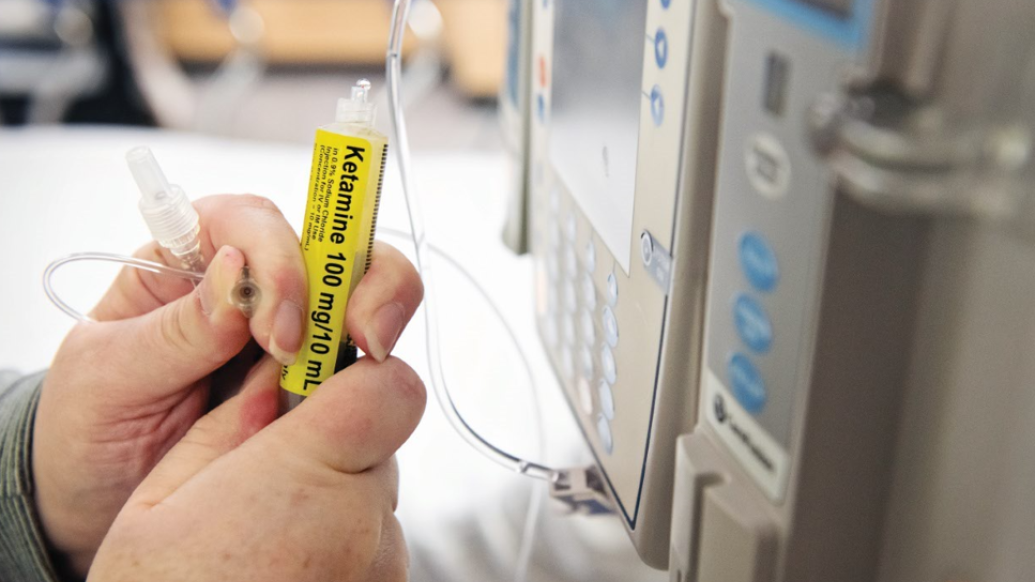
Before it was studied as a treatment for depression and chronic pain, scientists developed ketamine as a safer alternative to an earlier anesthetic, PCP.
In the 1960s, chemists at Detroit-based pharmaceutical company Parke-Davis reached out to U-M to study ketamine.
In 1965, U-M pharmacology professor emeritus Edward F. Domino and anesthesiology professor Guenter Corssen published results of the first human trial of ketamine. The 20 subjects had good blood pressure, respiration rate, and other vital signs. And the risk of death was significantly lower compared to other general anesthetics available at the time.
Domino and Corssen also collaborated on the first clinical trial of ketamine. They published results in 1966 showing ketamine was a safe anesthetic in the 130 subjects undergoing surgery. Because of its short-acting pain-relieving properties, ketamine became a widely-used battlefield anesthetic in the Vietnam War.
The subjects of the 1965 study were people incarcerated at Jackson State Prison. The study was overseen by an ethics committee, and in 2017 Domino said, “To this day, NIH guidelines for prison research are based on what happened here.”
Sources:
Garber, Ken. “Listening to Ketamine: An anesthetic with Michigan roots is pulling people from the depths of depression.” Ann Arbor Observer, November 2022
Denomme, Nicholas. “The Domino Effect: Ed Domino’s early studies of Psychoactive Drugs.” Journal of Psychoactive Drugs, 50:4, 298-305,DOI: 10.1080/02791072.2018.1506599





